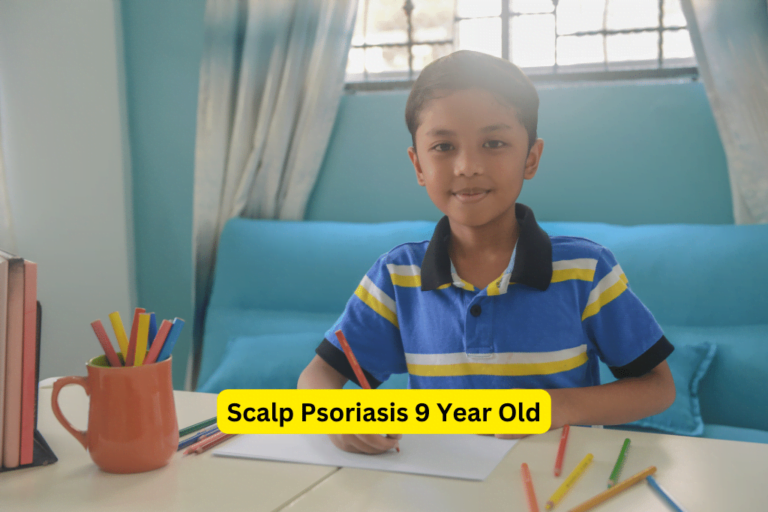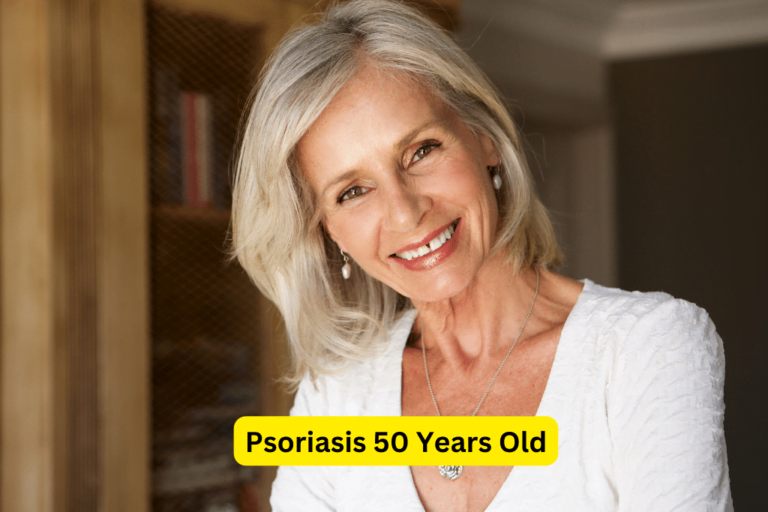Managing Psoriasis After 40: Expert Tips for Clearer, Healthier Skin
Psoriasis After 40
Psoriasis is a chronic autoimmune skin condition that affects countless individuals worldwide. It is characterized by red, itchy, and scaly patches on the skin that can cause significant physical and emotional distress. While psoriasis can develop at any age, it is increasingly prevalent among individuals over 40 years old. Understanding the unique challenges and impact of psoriasis after 40 is crucial for effective management and improved quality of life.
Understanding Psoriasis
A. Overview of psoriasis: causes, symptoms, and triggers
Psoriasis is believed to be caused by a combination of genetic factors and an overactive immune system. It is not contagious and cannot be spread through physical contact. The most common symptoms of psoriasis include red patches of skin covered with silvery scales, itching, and inflammation. Various triggers can exacerbate psoriasis symptoms, such as stress, infections, certain medications, and changes in weather or climate.
B. Types of psoriasis
There are several types of psoriasis, each with its own characteristics and presentation. The most common type is plaque psoriasis, which is characterized by raised red patches covered with thick, white scales. Guttate psoriasis appears as small, red, dot-like lesions on the skin, often triggered by bacterial infections. Inverse psoriasis primarily affects skin folds, such as the armpits and groin, causing smooth, shiny, and red lesions. Pustular psoriasis presents as pus-filled blisters accompanied by redness and scaling. Erythrodermic psoriasis is a rare and severe form that results in widespread redness, shedding of skin, and intense itching.
C. Differences between psoriasis in younger individuals and psoriasis after 40
Psoriasis can develop at any age, but the risk increases with age. Individuals over 40 may have different risk factors that contribute to the development of psoriasis, such as family history, hormonal changes, and age-related immune system changes. The severity and symptoms of psoriasis can also vary between age groups, with older individuals experiencing more frequent flare-ups and longer-lasting symptoms.
Psoriasis After 40: Challenges and Impact on Quality of Life
A. Common challenges faced by individuals with psoriasis after 40
Psoriasis after 40 presents unique challenges that can significantly impact an individual’s quality of life. Physical discomfort and pain are common, with symptoms such as itching, burning sensations, and joint stiffness affecting daily activities. The emotional and psychological impact of living with psoriasis can lead to feelings of embarrassment, low self-esteem, and increased stress. Additionally, social stigma and body image issues may arise, causing individuals to isolate themselves and avoid social interactions.
B. Impact of psoriasis on daily life activities
Psoriasis can have a profound impact on various aspects of daily life. It can affect work and career prospects, leading to decreased productivity and potential discrimination in the workplace. Relationships and intimacy may also be challenged, as individuals with psoriasis may feel self-conscious about their skin condition. An individual’s self-esteem and mental health can suffer, leading to depression, anxiety, and a diminished sense of well-being.
Managing Psoriasis After 40
A. Medical treatment options
There are several medical treatment options available to manage psoriasis after 40. Topical treatments, including corticosteroids and retinoids, can help reduce inflammation and control symptoms. Phototherapy, which involves exposing the skin to ultraviolet light, can also be beneficial. In more severe cases, systemic medications such as biologics and immunomodulators may be prescribed to suppress the immune system and reduce inflammation.
B. Lifestyle changes and self-care strategies
In addition to medical treatments, lifestyle changes and self-care strategies can play a significant role in managing psoriasis after 40. A healthy diet rich in fruits, vegetables, and omega-3 fatty acids can help reduce inflammation in the body. Stress management techniques, such as mindfulness meditation and relaxation exercises, can help alleviate stress-related flare-ups. Regular exercise and physical activity can boost overall well-being and potentially improve psoriasis symptoms.
C. Alternative and complementary therapies for psoriasis
Many individuals with psoriasis after 40 may explore alternative and complementary therapies to supplement their medical treatments. Natural remedies and herbal treatments, such as aloe vera and tea tree oil, may offer soothing effects and moisturize the skin. Acupuncture and acupressure have been suggested to help reduce stress and promote overall well-being. Mind-body practices like meditation and yoga can aid in stress reduction and improve mental health.
Tips for Coping with Psoriasis After 40
Coping with psoriasis after 40 requires a multi-faceted approach. Building a support network of friends, family, and support groups can provide emotional support and understanding. Developing a skincare routine involving gentle cleansing and moisturizing can help alleviate symptoms and maintain skin health. Educating yourself about psoriasis and seeking reliable information can empower you to make informed decisions about treatment options. Finally, seeking professional help from dermatologists and mental health professionals can ensure comprehensive and targeted care.
Conclusion
Psoriasis after 40 poses unique challenges that can significantly impact an individual’s quality of life. Understanding the causes, symptoms, and management strategies specific to psoriasis after 40 is crucial for effective treatment. Early diagnosis and proper management can help individuals achieve clearer, healthier skin and improved overall well-being. Seeking appropriate support and treatment options can provide hope for a better quality of life despite the challenges posed by psoriasis after 40.
"Have You Seen Mike Walden's new holistic acne System yet? It's called "Acne No More" I've read the whole thing (all 223 pages) and there's some great information in there about how to naturally and permanently eliminate your acne without drugs, creams or any kind of gimmicks. I highly recommend it - it's very honest and straightforward without all the hype and b.s. you see all over the net these days. Here's the website where you can get more information:
Click Here -->AcneNoMore









